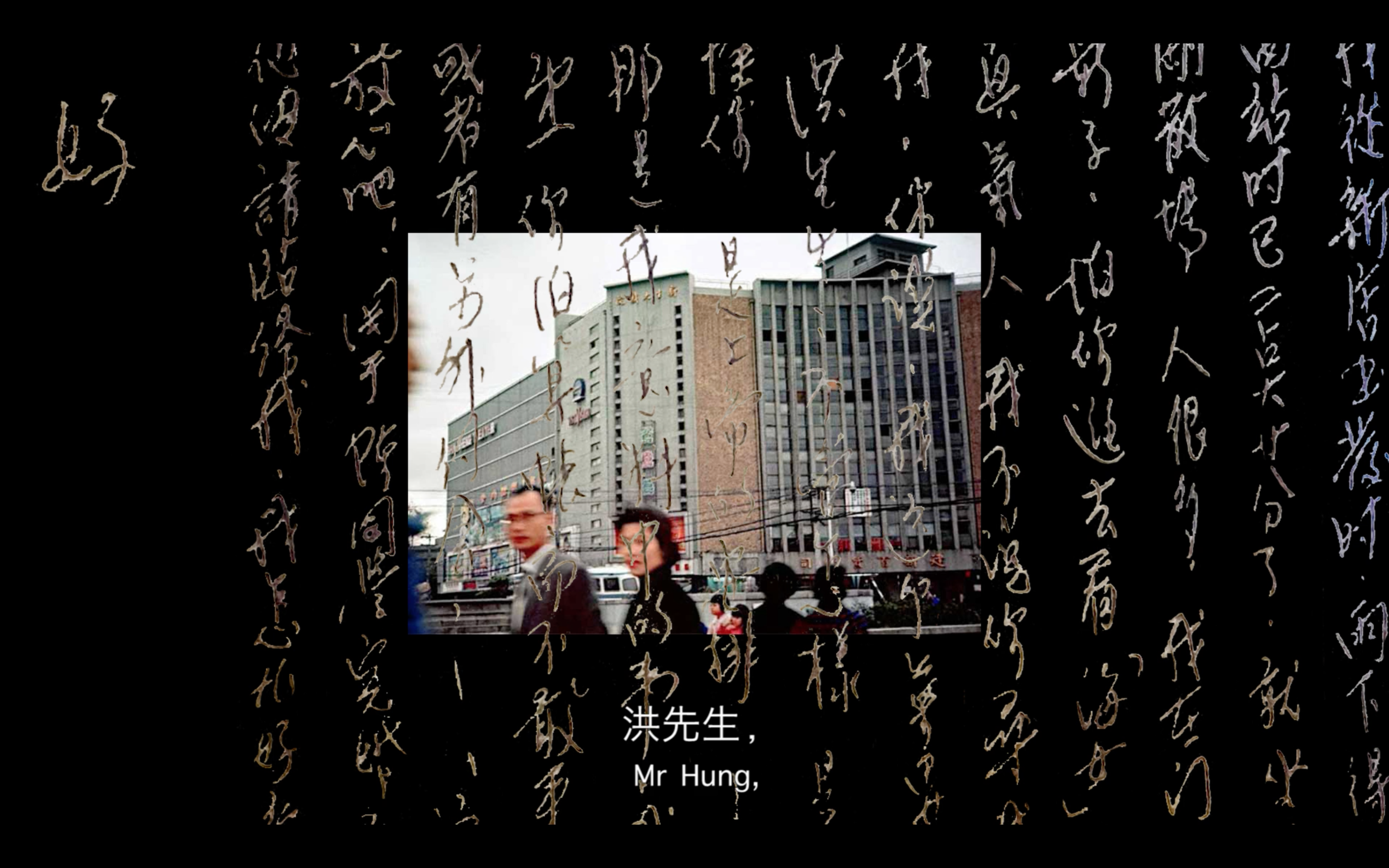Dear Yu Chu by Wu Pei-Chi
“Whenever I visit Taipei, it’s always rainy.”

Wu Pei-Chi, Dear Yu Chu (still), 2020
One of my earliest childhood memories was my mother singing me to sleep with Mai Meng’s song Come to Taipei to see the rain in the winter (冬季到台北来看雨). Later I learned that during the Chinese civil war, my grandfather’s brother, then a soldier in the Nationalist Party, had separated from the rest of his family. He had resettled in Taiwan and started a family. He and my grandfather exchanged letters for some years, but eventually lost contact when he lost his sight. Rainy places are usually sad places, as they say. The sadness speaks through the humid, sharp wind that pierces through the foreigner’s gaze. The past is a foreign country. Even now, the rain still follows me as I go.
Dear Yu Chu (2020) is a video work by Taiwanese artist Wu Pei-Chi that reiterates distant and intangible memories through the lens of several found letters between two lovers. A kind of ambient romance, Dear Yu Chu follows the letters exchanged between the protagonists, Yu Chu and Mr. Hung. In the 15-minute long video, we glimpse into the personal entanglements as well as the broader social conditions alluded to through Wu’s poetic inquiry.
Wu came across these letters in a second-hand shop in Kaohsiung where she was doing an artist residency. They were written in 1959, only ten years after Mandarin became the official language in Taiwan when the Nationalist Party retreated after their defeat in the Chinese civil war. The hybridity in the languages used in Taiwan is where one can identify the leftover entanglements of the epistemic violence. The country’s political upheaval in the past centuries resulted in displacement of not only individuals but also memories. And unsurprisingly, there is little writing on individual conditions in times of collective turmoil.

Wu Pei-Chi, Dear Yu Chu (still), 2020
In Dear Yu Chu, we follow the correspondences between Yu Chu and Mr. Hung. They were separated by Yu Chu’s displacement to Taipei and failed to reunite when Mr. Hung did not show up to their date at Hsin Sheng Cinema. The scenes are carefully orchestrated with footage from old Taiwan juxtaposed with its nowadays contemporary façade — sometimes the two collide and we see a monochrome image of a tricycle intersecting the pigmented modern depiction of the same background. Wu’s lens searches the locations depicted in Yu Chu’s letters in Taipei only to find that they are already made over. Through Wu’s fluid exercise of montage, we see the long distance between the lovers, between Taipei now and then, flitting by in front of our eyes.
Wu’s works often pursue a search for overlooked sincerity. Profoundly aware of how easily language and, thereby, human intimacies are debased, she constantly confronts how much one means when one speaks or when one doesn’t speak. With gentle and careful attention to the embodiment of emotions, Wu weaves an immense nostalgia into her beautifully rendered work.
21. 11. 2020 in London
Dear Yu Chu is now on view at Till We Meet Again IRL